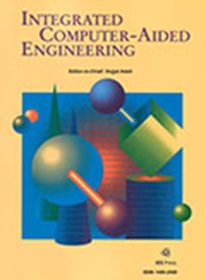如何在三十年后保持一流期刊的最高质量标准:一位杰出的总编辑以身作则
IF 5.3
2区 计算机科学
Q1 COMPUTER SCIENCE, ARTIFICIAL INTELLIGENCE
引用次数: 0
摘要
我很荣幸也很高兴能在《集成计算机辅助工程》(Integrated ComputerAided Engineering, ICAE)杂志连续出版近30周年的庆祝活动中分享我的想法。当然,这样一本国际期刊要感谢它的编辑委员会,感谢众多的审稿人,感谢更多信任期刊的作者和读者,我要感谢他们的意愿,他们的工作和他们的信任。在当前的情况下,该杂志的卓越也在很大程度上归功于其创始人兼主编Hojjat Adeli教授的工作和个人参与,我想在接下来的段落中强调他的远见和工作。2000年,Adeli教授邀请我加入ICAE编辑顾问委员会,我感到非常荣幸。这项登记一直持续到2006年。在此期间,我成为IEEE信号处理学会法国分会的负责人(2003-2013),然后是IEEE信号处理交易的副主编(2005-2008);由于这些承诺产生了更艰巨的任务,我不得不辞去ICAE的职务。但从2017年开始,我再次担任ICAE期刊的编委会成员,这非常激励我。因此,根据我自己的经验,我可以作几点评论。首先,科学期刊在这么长的时间里保持同一个总编辑是极不寻常的:这样的职位必然会产生巨大的工作量,显然与单纯的科学活动不相容,而且任何一个通常有技能的科学家的热情随着时间的推移开始消退。当我比较我在ICAE的两个任期时,我可以保证,尽管Adeli教授的科学推广是我们这个时代最杰出和最有影响力的研究人员之一,但我们EIC对这本杂志的参与多年来一直保持不变。第二,我们可以看到,如今,高水平的科学期刊必须应对几个相当新的挑战:潜在出版物的数量不断增加,其范围不可避免地扩大。一方面,在过去的几十年里,该杂志的科学和技术领域的论文数量急剧增加。许多在旅游景点举办的小型会议,许多只在网上出版的期刊,由于没有严格的审查政策,产生了大量的论文,这是等式的一部分。同时,科学家很容易在互联网上上传预印本,这些预印本不需要任何审查就可以获得,有时是未完成的论文(或没有任何验证结果的论文),所有这些材料都有交叉参考:这是同一方程的另一个相当重要的部分。在缺乏足够严格的规则和足够严格的选择标准的情况下,其中一个风险是优秀的作品可能会淹没在噪音中。尽管如此,ICAE期刊一直保持(几乎)严格的选择规则。多年来,我亲自审阅了大量投稿,并为该杂志管理了3期特刊。每一次,我都注意到选择过程是多么严格和苛刻,Adeli教授要求的详细审查次数可能高达8次(这可能是我下面第二个论点的副作用),这可能是突出的事实。本文章由计算机程序翻译,如有差异,请以英文原文为准。
How to maintain the highest quality standards of a leading journal after three decades: An extraordinary Editor-in-Chief leading by example
This is my deep honor and great pleasure to share my thoughts on the celebration of almost 3 decades of continuous publication of the Integrated ComputerAided Engineering (ICAE) Journal. Of course such an international journal is indebted to its Editorial Board, to the numerous reviewers, to the even more numerous authors who trusted the journal and to the readers, and I would like to thank them all for their willingness, their work and their trust. In the current case, the journal’s excellence is also in no small measure due to the work and personal involvement of its founder and Editorin-Chief, Professor Hojjat Adeli, and I would like to emphasize his vision and work in the next paragraphs. I was greatly honored when Prof. Adeli asked me to join the ICAE Editorial Advisory Board in 2000. This enrolment lasted until 2006. Around this date, I became the Chief of the French section of IEEE Signal Processing Society (2003–2013), then an Associate Editor of the IEEE Transactions on Signal Processing (2005–2008); since these commitments generated more demanding tasks, I had to resign from my ICAE duties. But I have been serving the ICAE journal as a member of the Editorial Board again since 2017, which is very motivating. Thus, in the light of my own experience, I can make several remarks. First, it is most unusual for scientific journals to keep the same Editor-in-Chief for such a long time: such a position must generate an enormous workload, obviously not compatible with a mere scientific activity, and the enthusiasm of any normally skilled scientist begins to fade over the years. When I compare my two terms with ICAE, I can assure that our EIC’s engagement in this journal has been constant over the years, albeit Prof. Adeli’s scientific outreach is one of the most prominent and influential researchers of our time. Second, one can see that, nowadays, high standard scientific journals have to cope with a couple of rather new challenges: the growing number of potential publications and the inevitable broadening of their scope. On the one hand, the number of papers spreading over the scientific and technical fields of the journal has been dramatically increasing over the last decades. Many new small conferences in touristic locations, many internetonly journals, without solid reviewing policy, generate a lot of papers, which is part of the equation. Concurrently, it is fairly easy for a scientist to upload preprints over the Internet which are made available without any review, which are sometimes unfinished papers (or papers without any verified result), all these materials making cross-references: this is another quite substantial part of the same equation. One of the risks in such an absence of sufficiently strict rules and sufficiently rigorous selection criteria is that excellent works may be drowned among the noise. Nevertheless, the ICAE journal has always maintained (almost) drastic selection rules. I have reviewed plenty of submissions myself and managed 3 special issues for the journal over the years. Each time, I noticed how rigorous and demanding the selection process was, which may be highlighted by the fact that the number of detailed reviews requested by Prof. Adeli may amount up to 8 (which may be a side-effect of my second argument below).
求助全文
通过发布文献求助,成功后即可免费获取论文全文。
去求助
来源期刊

Integrated Computer-Aided Engineering
工程技术-工程:综合
CiteScore
9.90
自引率
21.50%
发文量
21
审稿时长
>12 weeks
期刊介绍:
Integrated Computer-Aided Engineering (ICAE) was founded in 1993. "Based on the premise that interdisciplinary thinking and synergistic collaboration of disciplines can solve complex problems, open new frontiers, and lead to true innovations and breakthroughs, the cornerstone of industrial competitiveness and advancement of the society" as noted in the inaugural issue of the journal.
The focus of ICAE is the integration of leading edge and emerging computer and information technologies for innovative solution of engineering problems. The journal fosters interdisciplinary research and presents a unique forum for innovative computer-aided engineering. It also publishes novel industrial applications of CAE, thus helping to bring new computational paradigms from research labs and classrooms to reality. Areas covered by the journal include (but are not limited to) artificial intelligence, advanced signal processing, biologically inspired computing, cognitive modeling, concurrent engineering, database management, distributed computing, evolutionary computing, fuzzy logic, genetic algorithms, geometric modeling, intelligent and adaptive systems, internet-based technologies, knowledge discovery and engineering, machine learning, mechatronics, mobile computing, multimedia technologies, networking, neural network computing, object-oriented systems, optimization and search, parallel processing, robotics virtual reality, and visualization techniques.
 求助内容:
求助内容: 应助结果提醒方式:
应助结果提醒方式:


